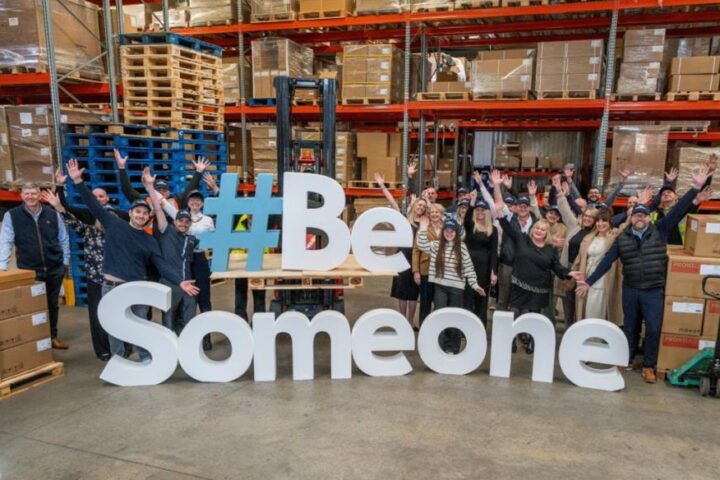Workplace Journal speaks with Hugo Ward, director at LetsFearlesslyGo (LFG), about addressing the Gen Z career crisis.
LFG is an innovative online career platform that empowers young people and graduates to build confidence and secure meaningful careers. Through expert coaching, AI-powered tools, and a data-driven job search platform, LFG helps school leavers and graduates develop real-world skills and get hired fast.
What are the main barriers that Gen Z job seekers are facing in today’s job market, and how do these differ from previous generations?
There’s a perfect storm facing university and school leavers. The rise of artificial intelligence (AI) is fundamentally changing the job market. According to the World Economic Forum’s Future of Jobs report, 65% of children entering primary school today will end up working in jobs that hasn’t even been invented yet. Unlike 50 years ago, when career paths were relatively straightforward, schools and universities are no longer certain what they should be teaching that will be useful for the next 50 years. There are more graduates than ever before, but fewer graduate-level jobs. There’s also a generational mismatch: older generations often expect traditional work ethics of long hours and rigid structures, whilst Gen Z tends to seek more flexible arrangements, such as remote work or becoming a digital nomad.
What factors are driving the trend of young people struggling to secure their first job?
The COVID-19 generation was critically impacted by lockdowns and isolation. They missed two vital years of engaging with people, which has significantly affected their social skills. Employers are noting a marked lack of soft skills, including resilience, social intelligence, emotional intelligence, and confidence. The pandemic has created challenges in how young people develop these crucial workplace skills.
How has the shift towards remote work, automation, and AI impacted opportunities for graduates and young professionals?
There are two sides to this. On one hand, employers are nervous about hiring at scale because they’re uncertain about AI’s impact on their businesses. On the other hand, young people are much better equipped to use technology. They are social media and AI natives, which puts them in a great position. While they may know little about a specific business, they know far more about technology than many senior professionals, making them valuable for companies navigating technological changes.
What practical steps can Gen Z take to build confidence during their job search?
First, understand your personal values and what drives you. Many people don’t truly know what they want from their career. Second, develop a strong network – and networking isn’t simply about drinking and exchanging business cards. It’s about understanding your existing connections from school, hobbies, family, and social groups. Learn to make bold requests, such as asking professionals for advice or a conversation. Every meeting can lead to new opportunities, and most professionals genuinely want to help young people.
What are some common mistakes young people make during their job search?
Technical mistakes include spelling errors in CVs, not adding enough keywords to pass algorithmic screening, and grammatical mistakes. Soft skill mistakes include failing to impress during interviews by not doing sufficient research about the company.
For example, when I was executive producer at The Economist’s film unit, many of the candidates I interviewed had never even watched any of our content. Research is key, but so too is enthusiasm, a sharp appearance, eye contact and if you can smile and be authentic you massively increase your chances.
Do you think the education system is adequately preparing young people for the realities of the workforce? What changes would you like to see?
The education system is clearly outdated and desperately needs disruption. We have a Victorian education system that isn’t keeping up with rapid technological changes. Parents often want to see the same education they experienced, which makes disruption difficult. The current system fails to measure and enhance crucial skills beyond academic intelligence.
We need to start measuring leadership, team performance, emotional and social intelligence, and neurodiversity. Currently, students leave with just a letter or number grade, which doesn’t reflect their full potential. The education system should provide a breakdown of academic grades, how their brain works, and their social and emotional capabilities. At present, we’re measuring only one small form of intelligence when employers are looking for so much more.
What role should the Government and employers play in tackling youth unemployment, and what actions could make the biggest difference right now?
The Government needs to be bold and think outside the box about educational reform. There’s a societal time bomb brewing because children aren’t being prepared for the workplace or for life. Whilst funding challenges exist; there’s a critical need to address these growing issues. Charities are doing brilliant work, but the scale of the problem requires Government intervention.
The current situation risks creating a generation of long-term unemployed individuals, which will cause much greater societal problems. Employers, meanwhile, need to adapt to understanding and working with Gen Z’s different expectations and work styles.
For young people who are feeling discouraged by repeated rejections or lack of opportunities, what advice do you have to help them stay motivated and resilient?
The key message is: you are not alone. There is help available. While rejection can feel overwhelming, young people should understand that support exists. This is precisely why organisations like LFG have been created – to bridge the gap between learning and earning. Young people should celebrate their hobbies and passions, as these often provide the most valuable transferable skills.
Many young people hide skills from outside the classroom, but these are exactly what employers want to hear about. Whether it’s running a YouTube channel, being a sports coach, or volunteering, these experiences demonstrate leadership, creativity, and commitment.
Looking forward, what skills or mindsets do you believe will be most valuable for Gen Z as they navigate an ever-changing job landscape?
The most valuable skills will be adaptability and technological fluency. Gen Z needs to understand how to use AI effectively as a tool, not just as a replacement. They should focus on developing strong networking skills, understanding their personal values, and being able to articulate their unique strengths.
The ability to learn quickly, adapt to new technologies, and leverage their network will be crucial. Young people should be proud of their diverse skills and experiences and learn to present these confidently. The key is to stand out by thinking differently and showcasing their unique capabilities beyond traditional academic achievements.
















